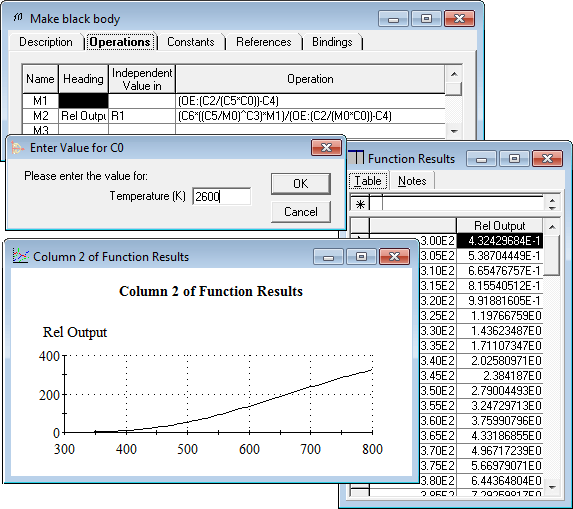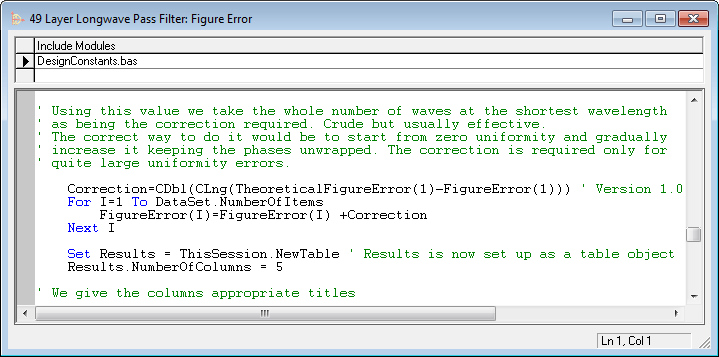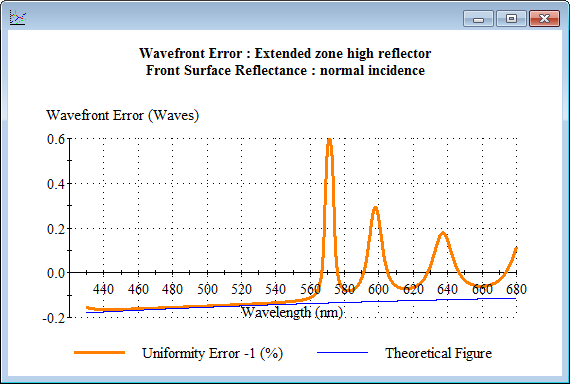The macros form an Operation that can be saved and recalled. An operation handles arrays of data as simple variables and carries out all necessary interpolations completely automatically. Operations have the capability of creating black body sources, deriving n and k data for materials from formulae such as the Cauchy, readily calculating quantities such as mean or peak performance, applying different scaling rules to data and so on. The macros are very quick and easy to write, and there are useful built-in debugging tools, but the possible range and complexity is limited.

Scripts are much more powerful than operations but more complicated to write. A script can call most of the entities in the Essential Macleod as objects and a command to run it can be inserted in the appropriate Tools menu. Two powerful editors exist, one for the BASIC script and the other for the dialogs that permit the user to interact with the script just as though it were a built-in part of the software package.

Scripts are also compatible with external programs that support OLE such as Microsoft Word. A wide range of prewritten scripts is supplied, accompanied by help files. They include scripts for creating new sources, for estimating contamination sensitivity, for creating nanocomposite materials according to various models, for calculating properties of OLED’s, for examining three-dimensional collections of coated surfaces, for the effect of nonuniformity on surface figure and so on.

Design object methods include accessing the figure of merit of a design, and so additional synthesis routines, for example, can readily be introduced as scripts. Scripts can also be written that replace the actual merit calculation, so that special merit functions, not available in the standard package, can be created.
All products and services may be ordered directly from Thin Film Center or from any of our agents. For your convenience we accept payment by American Express, Mastercard and Visa. Please contact us, or our agents for pricing information.

Telephone: +1 520 322 6171
Email: info@thinfilmcenter.com
